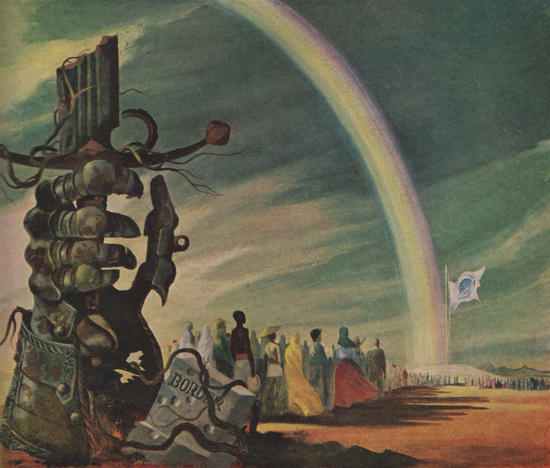Installment no. 1 (H02)
John Muir is an immigrant from Scotland and became known as one of the greatest environmentalists in all of history during his life in America. His writings have contributed so much to conservation efforts in America and to the overall philosophical canon of the West. Though his views are somewhat rooted in theological beliefs, he does stray from the traditional Christianity of the time and offer insightful views on how humans fit into existence.
Muir's life is an important factor in understanding his philosophical views. Ever since he was a young boy in Scotland, back in 1838, he loved nature. Author Amy Marquis notes that he began his "love affair" with nature while young, and implies that it may have been in reaction to his strict religious upbringing. It was then when Muir become interested in the writings of Scottish naturalist Alexander Wilson. In 1849, the Muir's traveled to the "Land of Opportunity", and thus began John Muir's true fascination with nature. Once he had settled down in San Francisco some several years after his arrival in America, Muir visited the Yosemite Valley. He was taken by it's beauty and grandeur and instantly fell in love. Muir would spend the rest of his life in and out of this valley, never growing tired of it.
John Muir operated a saw mill in the valley and used his free time to explore. He would set off into the wilderness without a tent, pad, nap sack, or any other luxury. All he brought was himself, his journal, and a few reading materials. Eventually he stopped bringing an overcoat because it got in the way. every night he would set up his campfire and lay by it reading until he fell asleep, completely unprotected from the snowfields and ice sheet prevalent throughout the valley.
For most people, Muir's lifestyle seems a little rough, but that is what he believed was wrong with society. Man is too concerned with money and luxuries. He believed that "every creature on the planet was as worthy as any other, and that Man had no special place in the ecosystem; simply a place that was exalted enough to have a great deal of responsibility attached to it." This quote comes from the video below.
If you would like to learn more about the lifestyle of John Muir, This documentary captures the essence of his life and what it was like perfectly. It might be a little long, but if you are interested in the subject it is worth a watch:
Muir's life is an important factor in understanding his philosophical views. Ever since he was a young boy in Scotland, back in 1838, he loved nature. Author Amy Marquis notes that he began his "love affair" with nature while young, and implies that it may have been in reaction to his strict religious upbringing. It was then when Muir become interested in the writings of Scottish naturalist Alexander Wilson. In 1849, the Muir's traveled to the "Land of Opportunity", and thus began John Muir's true fascination with nature. Once he had settled down in San Francisco some several years after his arrival in America, Muir visited the Yosemite Valley. He was taken by it's beauty and grandeur and instantly fell in love. Muir would spend the rest of his life in and out of this valley, never growing tired of it.
John Muir operated a saw mill in the valley and used his free time to explore. He would set off into the wilderness without a tent, pad, nap sack, or any other luxury. All he brought was himself, his journal, and a few reading materials. Eventually he stopped bringing an overcoat because it got in the way. every night he would set up his campfire and lay by it reading until he fell asleep, completely unprotected from the snowfields and ice sheet prevalent throughout the valley.
For most people, Muir's lifestyle seems a little rough, but that is what he believed was wrong with society. Man is too concerned with money and luxuries. He believed that "every creature on the planet was as worthy as any other, and that Man had no special place in the ecosystem; simply a place that was exalted enough to have a great deal of responsibility attached to it." This quote comes from the video below.
If you would like to learn more about the lifestyle of John Muir, This documentary captures the essence of his life and what it was like perfectly. It might be a little long, but if you are interested in the subject it is worth a watch:
In the second installment, I will continue with the philosophies of John Muir. This was merely a short summary of his life and an introduction to his beliefs. There is a lot to talk about through his encounters with Emerson, Roosevelt, and others and his desire to preserve Yosemite Valley.
Also, books by John Muir include:
The Mountains of California
Our National Parks
My First Summer in the Sierra
Nature Writings: The Story of My Boyhood and Youth

